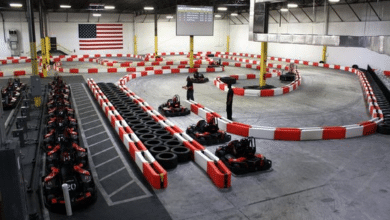Jamaica’s athletics culture underpins its success, coach says

By Rogelio Adonican Osorio
Panama City, Oct 28 (EFE).- Jamaican elite track-and-field coach Jerry Holness says a strong athletics culture exists in his homeland, attributing the remarkable success of the island’s sprinters to their hard work and discipline from an early age.
“There’s a track-and-field culture in Jamaica. Starting in elementary school, children like to practice athletics, (and) there are lots of competitions to develop their talent,” the World Athletics Level-5 coach said during a visit to Panama City.
Holness was in Panama to share his expertise with that nation’s coaches and contribute to the continued growth there of athletics, the only sport in which the Central American country has secured Olympic medals (a gold and two bronzes).
“The fact is that in athletics you need to have dedication. You have to work a lot and hard. I think that’s the area that needs to be developed in Panama, (improving) the work ethic and developing the culture, because people here are the same as in Jamaica,” he said.
Wearing the traditional green, yellow and black of Jamaica’s flag and athletics teams, Holness said Panama and his home country have a lot in common culturally, the sport of track and field included.
“Both here and in Jamaica, if they prick us we bleed. When we work, we sweat. The food and the air here are the same as in Jamaica. So why aren’t more athletes being produced here in Panama?” he said.
Holness said he has worked with many of Jamaica’s top athletes, mentioning among others Elaine Thompson-Herah, gold medalist at the 2020 Olympics in Tokyo and the 2016 Olympics in Rio de Janeiro in both the women’s 100 meters and women’s 200 meters.
“Nesta Carter, Elaine Thompson-Herah, Sherone Simpson, Omar McLeod, and others … all those athletes passed through my hands, from when they were in high school,” he said.
While its achievements in track and field pale in comparison to Jamaica’s, Panama greatest feats on the world stage also have come in athletics.
Lloyd La Beach won a pair of bronze medals in the men’s 100 meters and men’s 200 meters at the 1948 Olympics in London and Irving Saladino captured gold at the 2008 Olympics in Beijing in the men’s long jump.
“Success comes from dedication. You have to work a lot and hard, without neglecting the resources provided to the athletes,” he said.
Holness gave his talk on the track at the University of Panama’s Harmodio Arias Madrid Campus in Curundu, a Panama City neighborhood, and wasn’t shy about criticizing the poor condition of that sports facility.
“More development is needed, both in the schools and in the universities. I haven’t had the chance to go to a national stadium. I don’t know how the track is there, but in Jamaica a university like this one has a good track” for athletics training, he said.
Holness said the more than a score of Panamanian coaches who attended his course showed a lot of interest and will take back “some things from this seminar to go and work with their respective schools or athletes in their provinces.”
“We’re ready to work with you here. If you need more help, let me know and we’re ready to help. Maybe we can take kids to train and study there, because in Jamaica we have a physical education university and a lot of national athletes train there,” the coach said.
Asked if track and field is king in Jamaica, Holness said that soccer is very popular there like just about everywhere else in the world.
“But Jamaica doesn’t have much in the way of results in soccer. We have better results in athletics.” EFE
rao/mc





